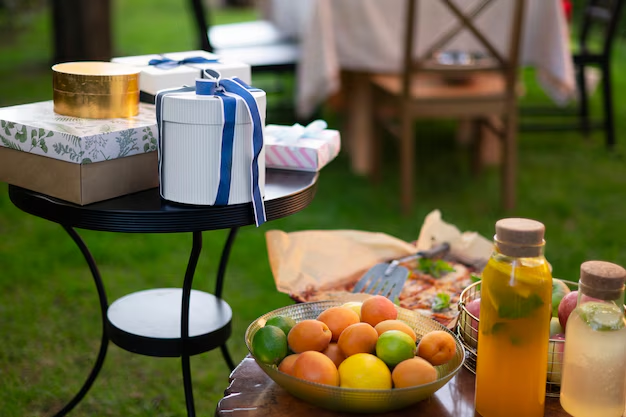Can You Keep a Refrigerator Outside? The Comprehensive Guide to Making It Work
If you're thinking about placing a refrigerator outside—perhaps for your backyard kitchen, garage, or patio—there’s a lot you should know. As enticing as it may seem to have easy access to cold drinks or extra storage, it's not as straightforward as it sounds. Let's dive into whether a refrigerator can work outside, the potential issues, and how you might overcome them to create a functional outdoor chilling setup.
🍃 Understanding Outdoor Refrigerator Placement
It might seem convenient to place a refrigerator outside for those summer cookouts, but several factors can impact its performance and longevity. Climate, placement, and type of refrigerator play crucial roles in determining if your appliance will work effectively in an outdoor setting.
Climate Considerations
One of the major concerns when placing a refrigerator outdoors is the weather. Temperature fluctuations can affect how well your refrigerator works. For example:
- In Cold Climates: Regular refrigerators aren't built to withstand freezing temperatures. In colder months, the compressor may not kick in, leading to freezing inside and potential damage to the appliance.
- In Hot Climates: A refrigerator outdoors in high temperatures may overwork itself, leading to decreased efficiency and increased energy usage.
Placement Matters
Where you place the refrigerator outside can significantly impact its performance:
- Shade and Shelter: Keeping the unit in a shaded or sheltered area can protect it from direct sunlight, rain, and snow. This modification can enhance its longevity and maintain efficiency.
- Level Surface: Like indoor refrigerators, an outdoor model should be placed on a flat, stable surface to avoid problems with the door seal and warmth distribution inside the appliance.
🔧 Choosing the Right Refrigerator for Outdoor Use
If you're committed to having a refrigerator outdoors, selecting the right type is essential to its functionality and durability.
Outdoor-Specific Models
Manufacturers design some refrigerators specifically for outdoor use. These units tend to have:
- Weather-Resistant Design: Built with materials that can withstand moisture, rust, and extreme temperatures.
- Advanced Insulation: Better insulation systems help maintain consistent temperatures amid external fluctuations.
- Robust Cooling System: Enhanced cooling systems to handle the additional work required by varying outdoor temperatures.
Compact and Portable Options
For versatility, you might consider smaller, more portable refrigerators:
- Mini Fridges: Ideal for patios or garages where space is limited. However, they may not be equipped for extreme conditions.
- Portable Coolers: Battery-operated or plug-in coolers are great for temporary outdoor events but usually lack the cooling power of traditional fridges.
🛠️ Maintenance and Practical Tips for Outdoor Refrigerators
All refrigerators need care, but outdoor models require particular attention:
Regular Maintenance
- Cleaning: Keep the exterior and interior clean to prevent mold and rust.
- Inspections: Regularly check the seals and coils for wear and ensure the cooling function is optimized.
Practical Tips
- Cover It Up: Use a durable cover to shield the fridge from elements when not in use.
- Electric Safety: Ensure your refrigerator is plugged into a grounded outlet with a Ground Fault Circuit Interrupter (GFCI) to prevent electrical hazards.
- Seasonal Adjustments: Consider moving the fridge inside or turning it off during extreme weather conditions, such as freezing winters or scorching summers.
🧊 Alternatives to Traditional Outdoor Refrigerators
If having a traditional fridge outdoors seems impractical, there are alternatives:
Ice Chests and Coolers
Perfect for temporary use, like BBQs or parties, they provide cooling without the need for electricity or a permanent setup.
Beverage Centers
Designed to store drinks, these units are often more compact and use less energy, making them suitable for outdoor bars or patios.
📋 Key Takeaways for Placing a Refrigerator Outside
Here’s a quick summary to help you decide:
- 🌡️ Climate-Dependent: Consider the local climate before using a standard refrigerator outside.
- 🏠 Location: Place in shade and shelter for optimal performance.
- 🛠️ Maintenance: Requires more frequent checks and cleaning than indoor units.
- 🔄 Alternatives: Explore non-permanent solutions or designated outdoor models.
Using a refrigerator outside takes thoughtful planning, but with the right precautions and decisions, it can become a valuable addition to your outdoor space. Consider all the factors above to ensure functionality and longevity, ultimately making your outdoor cooking or entertaining area more efficient and enjoyable.

